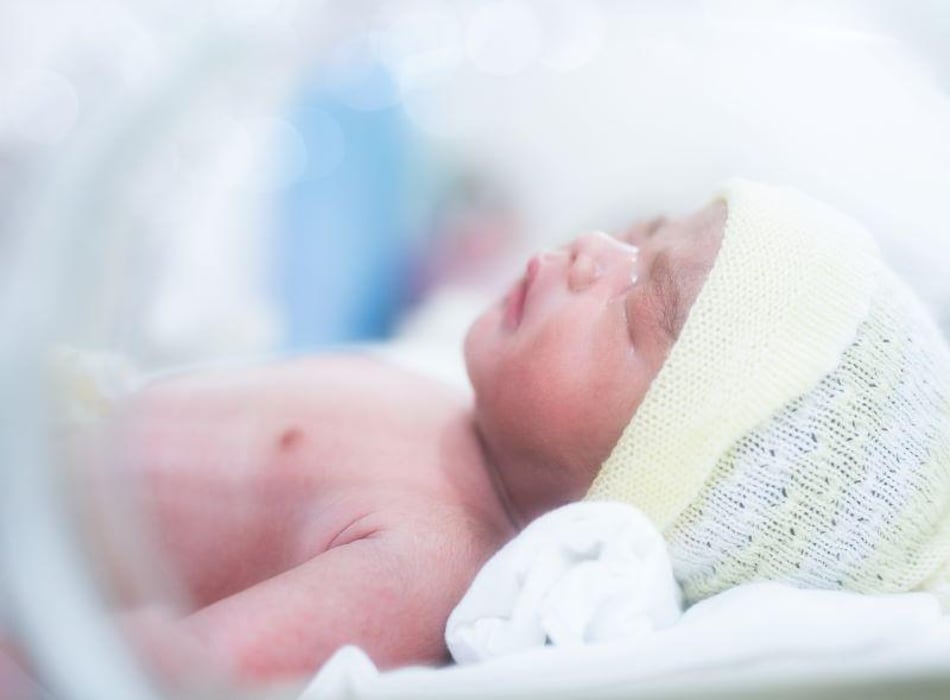Nirsevimab Protects Against RSV in Late-Preterm, Term Infants

FRIDAY, March 4, 2022 (HealthDay News) -- Healthy late-preterm and term infants who receive a single injection of nirsevimab administered before the respiratory syncytial virus (RSV) season are protected from medically attended RSV-associated lower respiratory tract infection, according to a study published in the March 3 issue of the New England Journal of Medicine.
Laura L. Hammitt, M.D., from Johns Hopkins University in Baltimore, and colleagues randomly assigned infants who were born at a gestational age of at least 35 weeks to receive a single intramuscular injection of nirsevimab or placebo before the start of an RSV season. A total of 1,490 infants were randomly assigned: 994 to the nirsevimab group and 496 to the placebo group.
The researchers found that medically attended RSV-associated respiratory tract infection occurred in 1.2 and 5.0 percent of infants in the nirsevimab and placebo groups, respectively, corresponding to 74.5 percent efficacy for nirsevimab. Hospitalization for RSV-associated lower respiratory tract infection occurred in 0.6 and 1.6 percent of infants in the nirsevimab and placebo groups, respectively (efficacy, 62.1 percent). Antidrug antibodies after baseline were detected in 6.1 and 1.1 percent of infants with data available to day 361 in the nirsevimab and placebo groups, respectively. Serious adverse events were reported in 6.8 and 7.3 percent of those who received nirsevimab and placebo, respectively.
"The results were consistent with those from a trial involving preterm infants that showed that the incidence of medically attended RSV-associated lower respiratory tract infection was 70.1 percent lower (95 percent confidence interval, 52.3 to 81.2) with nirsevimab prophylaxis than with placebo," the authors write.
The study was funded by MedImmune/AstraZeneca and Sanofi; Sanofi is developing nirsevimab with AstraZeneca.
Abstract/Full Text (subscription or payment may be required)
Related Posts
Hit Your Head? Look for These Warning Signs of Concussion
https://consumer.healthday.com/b-1-21-hit-your-hea... Credit: HealthDay
Más de la mitad de los adultos jóvenes de EE. UU. tienen una afección de salud crónica
JUEVES, 28 de julio de 2022 (HealthDay News) -- Obesidad, depresión,...
Biden to Lift COVID-19 Emergencies in May
TUESDAY, Jan. 31, 2023 (HealthDay News) -- The two COVID-19 emergency measures...
